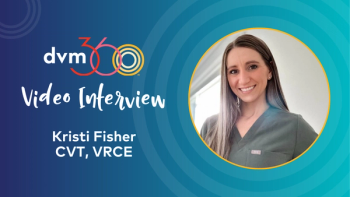
What if my state doesn't allow non-veterinarian ownership?
Use this loophole to negate vauge or exclusive bylaws.
More than half the states in the United States prohibit non-veterinarians from owning a veterinary practice. Only 14 or 15 states officially allow non-veterinarian ownership. The remainder of the states may or may not allow it, failing to directly address the issue in their practice acts. Dr. Karl Salzsieder, JD, thinks this is unfortunate because it prevents many qualified veterinary team members from reaching the earning potential they deserve. What’s more, it might push these same people to leave the field of veterinary medicine altogether.
So why disallow non-veterinarian ownership? State veterinary boards don’t want a profit-seeking entity influencing the doctors’ medical decisions. Of course, skilled managers and team members know that quality care is of the utmost importance and happens to fuel a solid bottom line. Yet these same well-intentioned, skilled team members are being shut out of practice ownership because of rules designed to keep investment firms and corporations at bay.
It takes two to tango
To uphold medical integrity while legally circumventing the issue in states that prohibit non-veterinarians to buy into a practice, Dr. Salzsieder recommends splitting the practice into two separate companies. It would work like this: Both companies would be established as an LLC but one would be called the management service organization (MSO), says Dr. Salzsieder, a Veterinary Economics Editorial Advisory Board member and owner of Salzsieder Consulting and Legal Services in Longview Wash. This MSO would own and handle the practice’s assets, such as inventory and the payroll for all employees except veterinarians and, in some states, technicians. It is this company that non-veterinarians, along with veterinarians, could buy into. The second company would handle the professional operations. Only veterinarians would own this company, which would direct the practice’s medical policies. To avoid the appearance that the MSO is dictating medicine, the second company would make all drug and equipment purchases, then assign the assets as appropriate to the MSO. Both companies would need to establish a contract to make all these details work. Regarding the practice, either company may own the building or lease it from a third party.
Walking the talk
As you can see, this is fairly complicated stuff. Which is why more non-veterinarian team members don’t already own practices, Dr. Salzsieder says. But he also says that now’s the time to encourage and set up the legal entities to establish non-veterinarian owners. In fact, Dr. Salzsieder intends to create two companies out of his practice, Yelm Veterinary Hospital in Yelm, Wash., in a few years. He’ll do so in order to allow his hospital administrator and assistant hospital administrator to buy into the practice along with a few associate veterinarians.
Newsletter
From exam room tips to practice management insights, get trusted veterinary news delivered straight to your inbox—subscribe to dvm360.





